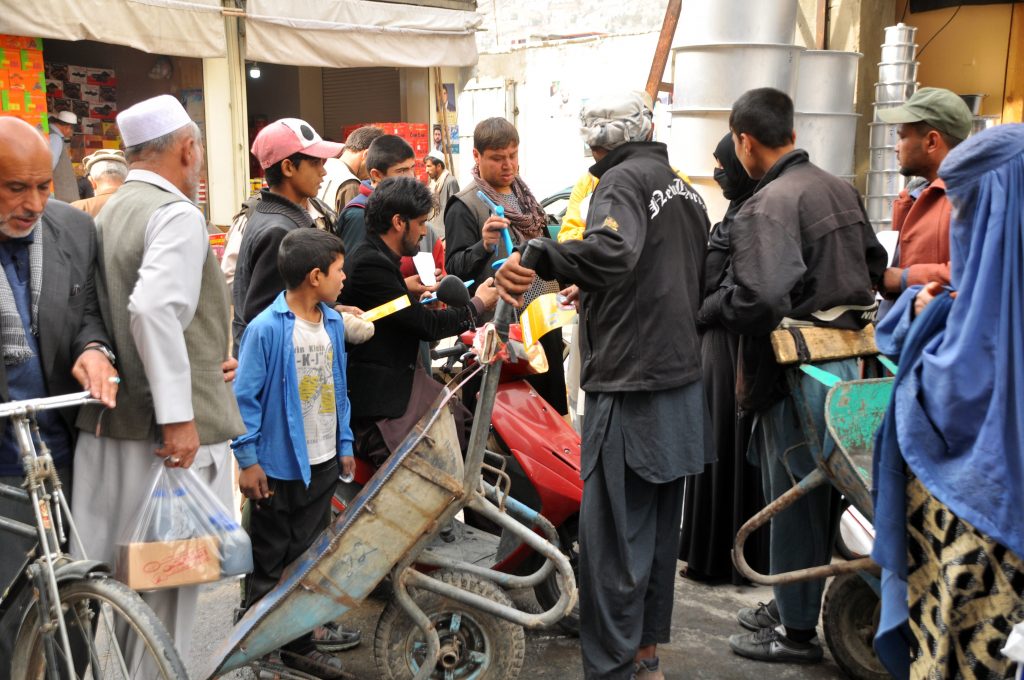
Lighting Global work in Fragile and Conflict States
The World Bank Group has had a long history of supporting disaster and crisis response, including supporting internally displaced populations and governments that host large refugee communities.
Today’s humanitarian emergencies are very different from past crises: displaced populations are growing, budgets are shrinking, and needs are evolving. As a result, humanitarian assistance has also changed. In recent emergencies, mobile phones have been critical for family reunification; children in protracted situations are enrolled in education programs that require lighting for nighttime studies; long and dangerous nighttime journeys have been aided by solar lighting devices; and in emergency settings, lanterns can provide light to clinics without electricity, or serve as a backup in case of power outages or generators that fail or have or run out of fuel.
Lighting Global works to raise awareness among relief organizations and governments on the importance of sustainable, portable, and reliable energy access in situations of crisis. Today, many off-grid energy kits are capable of providing not only lighting, but also mobile phone charging, both essential for protection, education, emergency telecommunication, immediate humanitarian response, and logistics — key pillars of the UN’s humanitarian and emergency response system.
Our support has included:
- Joining the Safe Access to Fuel and Energy (SAFE), a consortium that brings together humanitarian agencies and energy experts to share knowledge and ideas;
- Drafting key off-grid solar suggestions for the Global Plan of Action (GPA) – a framework recommending accelerated progress toward the vision of safe access to affordable, reliable, sustainable, and modern energy services for all displaced people by 2030;
- Evaluating energy conditions in refugee camps to explore opportunities that exist or might be possible for the pico-solar and solar home kit solutions. Refugee camps are substantial, yet mostly untapped markets that, if activated, could benefit both the refugees and the host communities – and allow refugees to lead more self-determined lives;
- Facilitating private sector energy interventions in fragile and conflicted-affected situations and countries –
- Working closely with the Liberian Rural & Renewable Energy Agency (RREA) to procure solar lanterns for distribution to the Ebola Response Teams and local health care facilities in Liberia to include in Ebola prevention kits,
- Providing market intelligence on energy consumption patterns and expenditures targeting the most vulnerable segments of the refugee population in Lebanon,
- In Afghanistan, home to one of the lowest rates of electricity usage in the world, the Lighting Global team in Kabul supported business development support to the first PAYGo operator entering the local market.
- Providing technical guidance on procuring large quantities of pico-solar and solar home system (SHS) kits for humanitarian aid. Our team helps governments and relief organizations understand the importance of quality standards, key procurement considerations, and a step-by-step guide to bulk-ordering.
Users of bulk-procured off-grid energy kits generally do not have the option to select the devices purchased on their behalf. Aid organizations, therefore, have a responsibility to procure high quality products that meet the needs of their programs’ beneficiaries. By procuring products that meet VeraSol / Lighting Global Quality Standards, aid organizations can have confidence in the quality and performance of the off-grid energy kits they are providing, and they also receive ancillary benefits such as strengthened tenders, increased product selection, and simplified bid evaluation.

